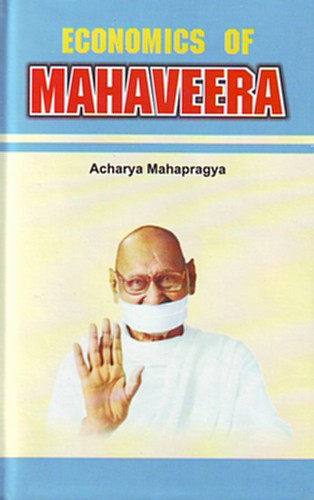
Both the economic and religious points of view are, perhaps, valid from their own respective angles. Theology, nonetheless, says that we must contain wants. We should remember also that this enunciation has been propagated keeping in view the problem of mental unhappiness. As Economics proposes that we should have more wants, it is clear that this principle has been enunciated with the objective of providing more and more comforts and luxuries in life.
Mahavira did not talk about dispossession of resources for the societal individual leading a family life. That is possible only for hermits. For a social being, he enunciated the principle of limiting desires and wants. A societal person cannot live by ending all desires and needs, but he cannot, at the same time, live peacefully by expanding them. That is why Mahavira propounded the middle course of limitation of desires and wants.
 Acharya Mahaprajna
Acharya Mahaprajna

